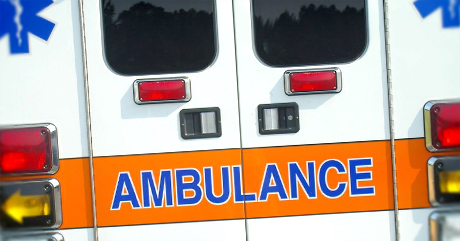Billing for Ambulance Scenarios Involving Death
Solemn Subject
This week we address a rather solemn subject.
While none of us care to admit it, there are times when our best life-saving efforts are unable to change the course of events and our patients succumb due to medical emergencies and/or trauma scenarios.
It’s sad for both the EMS provider and the patient’s family and friends, for sure.

To Bill or Not to Bill?
Our billing office frequently answers the “To bill or not to bill” questions from the EMS agencies we serve. We find that many EMS administrators are unaware of the rules surrounding these scenarios and are unaware of what we call the “QL” or “Quit Life” clauses.
Each EMS agency must be fully aware and understand how to properly bill for these scenarios in order to recover the appropriate reimbursement amount. We certainly understand the hesitation, at times, that we all have with regard to respect for those who remain, grieving families and the like. However, realistically we all know that we must collect every dime of potential reimbursement in these challenging economic times.
Setting the Tone
As is typical in EMS billing, Medicare sets the tone.
There are variations amongst commercial insurance companies and most States’ Medicaid programs have their own rules regarding payments for trips that include a patient death, but in large you can capture reimbursement dollars when following the rules as spelled out in Chapter 10, Section 10.2.6 of the Medicare Part B Benefit Policy Manual.
3 Variations
We must always be reminded that Medicare ambulance benefits are transport benefits. If no transport of a Medicare beneficiary/patient occurs, then no Medicare payment is allowable, except in one case.
The key is the time of death pronouncement and it is vital that the Patient Care Report (PCR) documentation reflect a truthful and accurate chronology of the events surrounding your scenario when it involves a patient death.
Before Dispatch
If the official time of death pronouncement is recorded as happening prior to ambulance dispatch, then Medicare and most insurance payers will not pay you for your involvement in the incident.
Many times, your ambulance may be called upon to transport a body to the local morgue in some jurisdictions. We recommend, in that case, that you seek a written agreement with the local official, such as a jurisdictional coroner to be reimbursed for your efforts. In rural areas, this can even include the transportation of a body to a more sophisticated facility for autopsy services not available in a small community setting.
After Dispatch
Today’s protocols are more and more allowing providers to provide care on the scene but to make decisions to end resuscitative measures in the field and without transport as guided by those protocols.
Medicare will allow for payment for these scenarios when the official time of death pronouncement is made after dispatch but before the patient is ever loaded and this can be either before or after the arrival of the ambulance at the scene.
Using the QL modifier, claims can be submitted to Medicare with resulting reimbursement issued at the BLS base rate level, only. No mileage payment is made on a QL claim.
Many commercial insurances, auto insurances, etc. also follow this practice.
During Transport
Your patient may succumb while your ambulance is transporting the patient to the hospital and in some cases the official time of death pronouncement is made prior to the patient’s arrival at the receiving facility.
In those cases, the claim is billed at the appropriate service level for the care provided and payment is issued based on the medically necessary level of service furnished, complete with mileage payment to the nearest appropriate receiving facility.
Documentation is Critical
As always the documentation included in the PCR is critical and must be specific regarding the events of the incident, especially the chronology of those events pinpointing the exact time of death pronouncement to allow your billing office to correctly categorize the incident for billing based on one of the three variations outlined above.